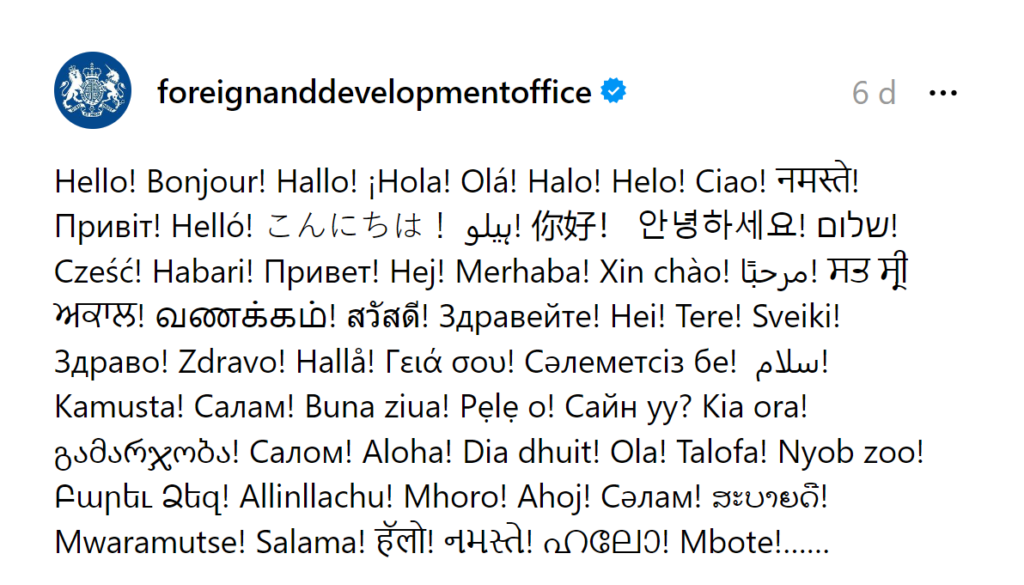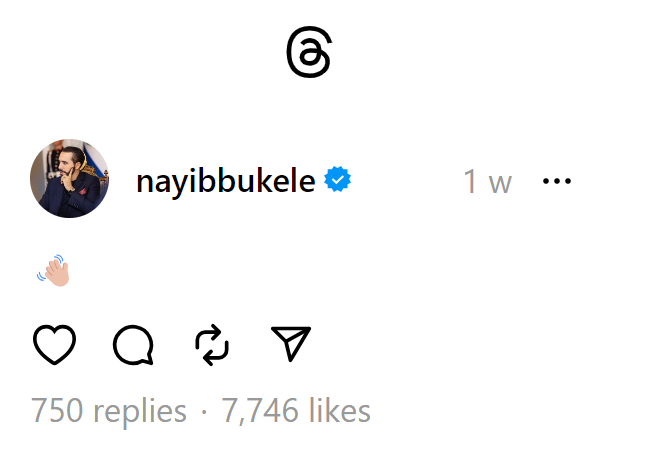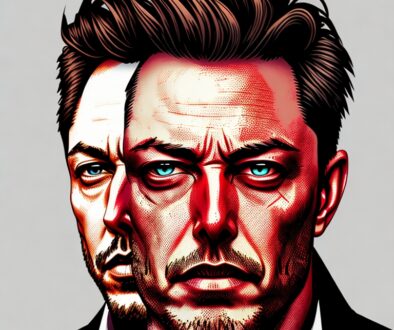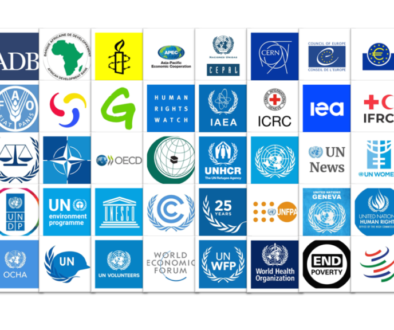Who are the first World Leaders on Threads?
Threads is barely a week old but has taken the internet by storm with more than 100 million users. Among them are 103 heads of state and government and foreign ministers from 53 countries who have switched to the new social media platform.
Latin American leaders are the most popular, occupying six places among the 10 most followed accounts. El Salvador’s President Nayib Bukele leads the pack with 366,000 followers. Brazil’s President is in second place with 306,000 followers and Colombia’s Petro Gustavo is in third place with 182,000 followers.
Sheik Mohammed, the leader of Dubai is in fourth place with a respectable 174,000 followers but he hasn’t posted any thread yet. Nigeria’s new President Bola Ahmed Tinubu completes the top 5 list of the most followed leaders with 136,000 followers.
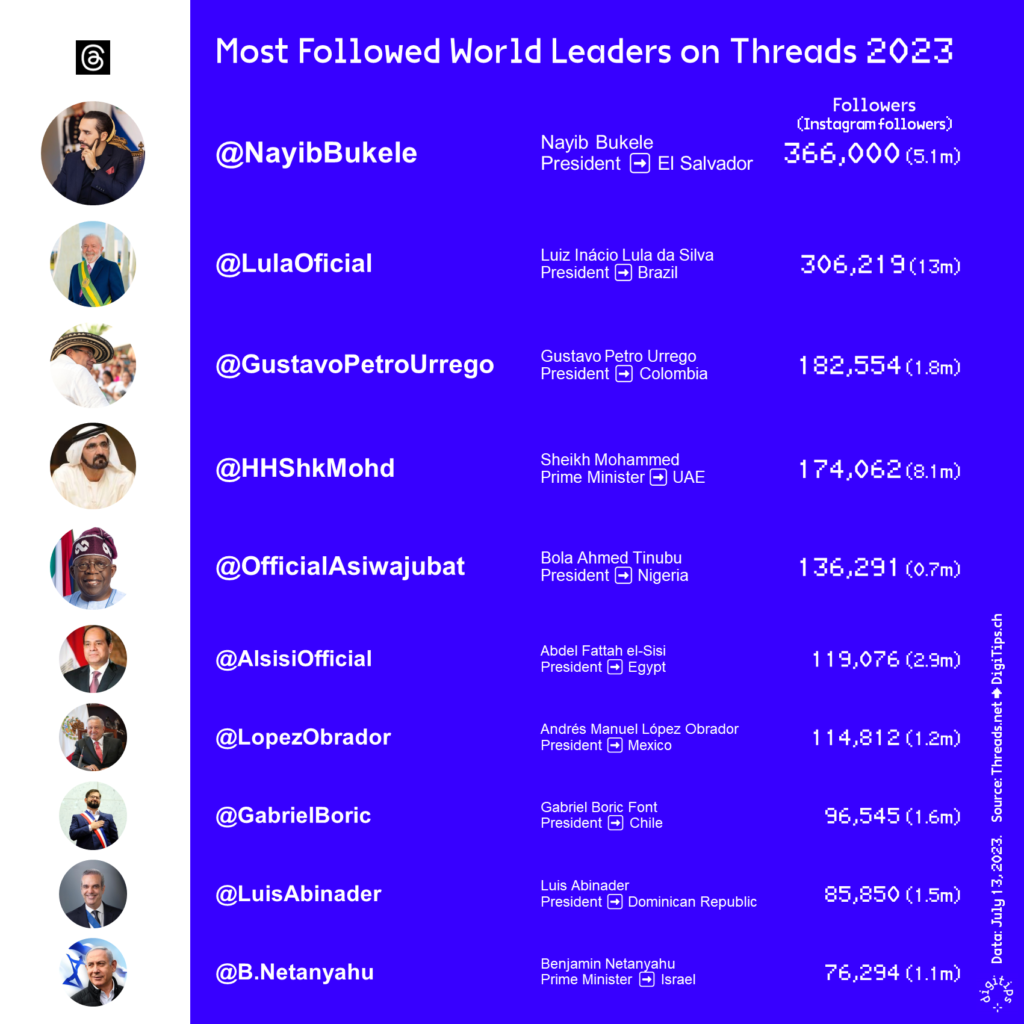
Among the early adopters are 24 presidents, twelve prime ministers and twelve foreign ministers who have switched their personal Instagram profiles to the new platform. Their follower numbers are still low but are rising daily as new users join the platform and many leaders already have millions of followers on Instagram.
Nayib Bukele posted a simple wave emoji as his first thread on July 6 and then told his followers: “I love you, but it’s time for you to go to sleep…” Jamaica’s Prime Minister Andrew Holness posted a video selfie: “Looking forward to making friends and having greater engagement with you. Let’s talk.”
This personal approach seems to work also for Israel’s Benjamin Netanyahu who posted a challenge to his followers: “Who is worth for me to follow? Someone interesting or funny in all areas of life. I have had enough of politics. I will try to respond from time to time 🎉”
So far, no EU government has adopted the platform since the Threads app is not available in the app store in the EU. While the UK Foreign Office and Foreign Secretary James Cleverly have embraced Threads, no G7 leader has yet established an account on Threads.
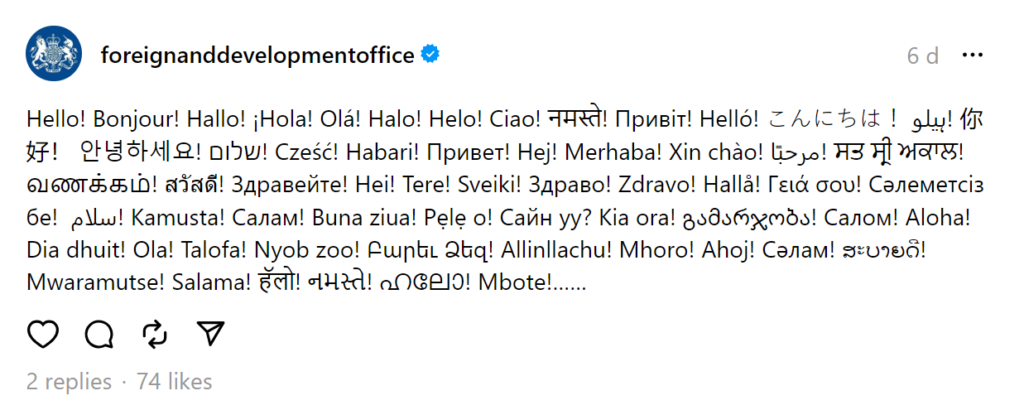
Most of the 660 Instagram accounts of heads of state and government and foreign ministers are still standing on the side lines, evaluating whether it is worth engaging on yet another social media platform.
